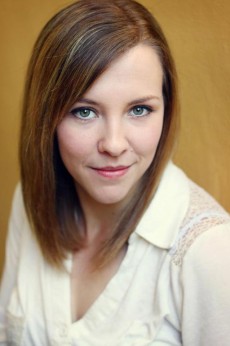 Humanities
Humanities
Fairy Tales Can Come True

Yes, it’s true: Tiffany Thomas, BA ’13, is getting paid to play video games all day.
But the path from theater arts major to a dream job with one of the world’s largest entertainment companies isn’t a slacker fantasy. It was a logical step, she says, given her interests and the skills she developed at the UO.
Thomas (pictured) is a brand quality-assurance tester for Disney Interactive, a division of the multinational corporation. Her job is to ensure that new video games that use Disney characters respect the Disney brand.
This means working exhaustively with a small portion of a game. “The way I describe it is, take your favorite song and take a 30-second clip of it and play it over and over for eight hours a day,” Thomas said, laughing. “It can get very monotonous—but my job is lucky because I get a lot of projects coming through.”
What’s she looking for? Suppose, for example, that in a children’s video game centered on Cinderella, a developer proposes that the Fairy Godmother turn the pumpkin into a white stretch limo for Cinderella. This would be a brand violation because the Disney Cinderella story takes place around the 15th century, before cars, Thomas said.
Thomas’ passion for all things Disney helped her land the position, of course. She keeps an image of Mickey Mouse on her keychain, and Disneyland was a regular stop when she was a kid.
But her education also paid off, she says, because it taught her how to adopt different perspectives—a vital skill in this job.
Thomas must speak the language of the animators, musicians and graphic artists who send her games, and she must explain their missteps and necessary changes in a clear, concise but ever-diplomatic way. It reminds her of a Hinduism class she took at the UO that required her to articulate the point-of-view of the author of a text, whether she agreed with that author or not.
Working through the fits and starts of a video-game prototype also requires the ability to envision different narratives and outcomes. Thomas often must deduce what the game developers intend for a particular sequence and, when licensing obstacles emerge, she dreams up alternative scenarios and solves problems with her clients to keep the game on track.
This ability to think creatively directly draws on her studies in set design, which Thomas took as a requirement for the major and embraced as a passion. Studying props under Jerry Hooker, an associate professor, Thomas worked her imagination as you would a muscle group. Hooker once assigned the class to collect random objects from around the house, then announced they would spend the day reimagining them as sci-fi alien firearms.
“We took things normally used for one thing and tried to picture them differently,” Thomas said. “It definitely took me out of what was comfortable and placed me in a really creative mindset.”
―Matt Cooper


 Twitter
Twitter Facebook
Facebook Forward
Forward